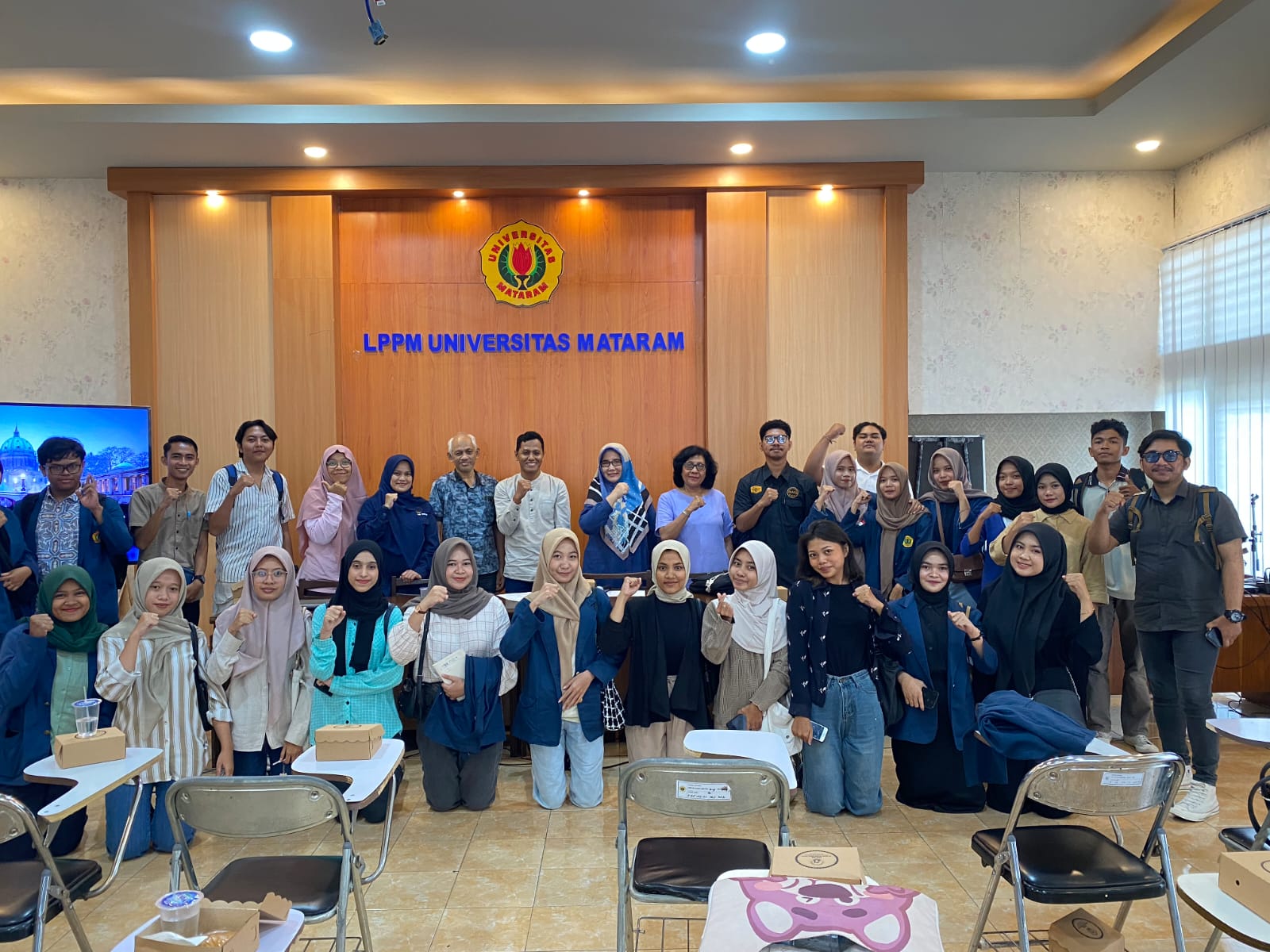LPPM Unram and BKKBN NTB Synergize in Striving to Reduce Stunting Rates

Mataram, University of Mataram – On Monday, June 10, 2024, the Research and Community Service Institute of the University of Mataram (LPPM Unram) along with the National Population and Family Planning Board (BKKBN) of the Province of NTB held a briefing activity for the Real Work Study (KKN) Village Community Empowerment (PMD) group for the July-August period. This activity took place in the Main Conference Room of LPPM Unram.
On this occasion, the Head of LPPM Unram, Prof. Dr. Ir. Sukartono, M.Agr. accompanied by the Head of KKN and Cooperation Center Dr. Ir. Misbahuddin, ST., MT., IPU.; Dr. Ir. Hayati, M.Hum.; and BKKBN Task Force of NTB Province, Budiman, M.Sc.
In his remarks, the Head of LPPM Unram, Prof. Sukartono explained, “The collaboration between the University of Mataram and BKKBN of NTB Province is part of striving to reduce the stunting rate by targeting the stunting prevalence rate to drop to 14% by 2024.”
“Higher Education can help the government to provide assistance to families at risk of stunting, so that mothers can deliver healthy babies through the Tri Dharma of Higher Education. Based on Presidential Regulation Number 72 of 2021 as a derivative guideline in the implementation of the National Action Plan for the Acceleration of Stunting Reduction (RAN PASTI), Higher Education is included in the structure as the Coordinator for Monitoring and Evaluation of the Acceleration of Stunting Reduction. One of the roles of Higher Education is to help the community, especially in fulfilling healthy, diverse and balanced nutrition,” said Prof. Sukartono.
Stunting is one of the major challenges in human resource development efforts to achieve a superior and quality generation. Although the results of the Indonesian Nutrition Case Study (SSGI) in 2021 showed a decrease in the stunting prevalence rate from 27.7% in 2019 to 24.4% in 2021, this figure is still quite high considering that WHO sets the standard for stunting rates in a country to be at least below 20%. With a stunting prevalence rate of 24.4%, this means that 6 million out of 23 million Indonesian children have impaired growth and development.
Dr. Ir. Hayati, M.Hum. as the main speaker in the KKN-PMD briefing with the theme Healthy Village explained that, “Stunting begins with a lack of correct knowledge in fulfilling nutrition for both pregnant women and babies or children. Students as Agents of Change can collaborate with partners such as Posyandu, religious leaders, local champions, Kadus, village heads, PKK mothers, and others. In the implementation of KKN, information dissemination must pay attention to methods and media. Determine the target of the activity. If the intended target is broad-scale, the approach can be done by, for example, socialization, tuning/making films, billboards, etc. Slogans can be used as an alternative to keep in mind when promoting nutrition.”
Unram through the KKN-PMD Program as part of community service is the most strategic step in strengthening planning and budgeting for handling stunting, improving the quality of implementation of accelerated stunting reduction activities, improving the quality of monitoring, evaluation, reporting, and increasing human resource capacity.
Budiman, M.Sc. as the NTB Province BKKBN Task Force added, “The role and presence of Unram KKN-PMD or MBKM students is very important and strategic, this is Unram’s effort to capture national and regional issues through an innovative academic approach.”
“This collaboration is important because in reducing this number, preventive action is needed in at-risk families. Activities must be carried out convergently, holistically and integrated. In 2024, the government through BKKBN will intervene simultaneously. It is hoped that students can become agents of change by becoming students who care about stunting,” she added.
Theser learning activities can be applied through education, teaching, research and community service activities that are synergized with BKKBN, which can be an important opportunity to employ students through the KKN-PMD / MBKM program. Therefore, the acceleration of stunting reduction is seriously carried out and Unram is able to help solve the stunting problem through eight activities in student learning, such as providing socialization, education, anticipation in the community carried out under the guidance of lecturers.
On the same occasion, Dr. Ir. Misbahuddin, ST., MT., IPU. as the Head of the KKN and Cooperation Center of LPPM Unram emphasized the same point, “Students’ analytical skills are expected to be able to explore the potential of the village. Especially the local potentials available to generate creative economy, green economy, blue economy and independent health of villagers.”
“There are several problems that generally accompany stunting, including economic problems, early marriage (merariq kodek), the environment, and others. KKN students need to observe and explore the potential of the village. Explore the potential of local food that can be converted into processed products, such as snacks or preparations that have high nutritional value and can be sold. This can be one of the independent health improvements. Therefore, students can work with village UMKM to improve the creative economy,” concluded Dr. Misbah.
